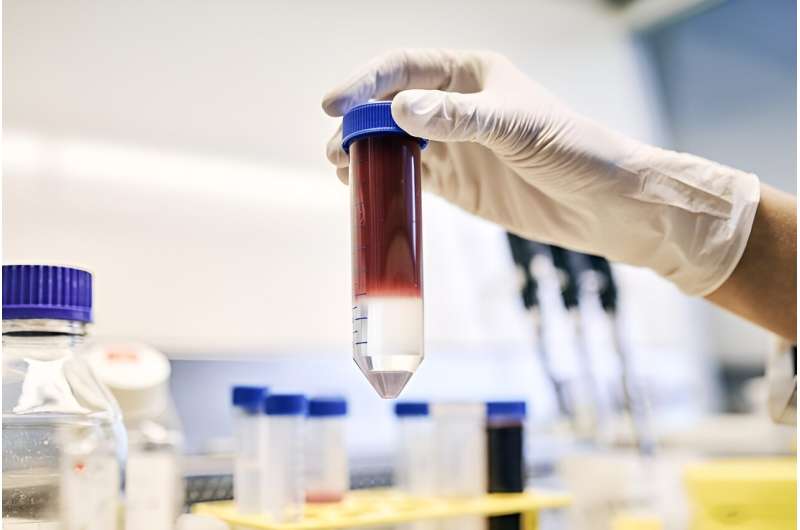by Friederike Gawlik, Leibniz Institute for Natural Product Research and Infection Biology
Salt could help to boost the immune defense against cancer. This is suggested by the research findings of a team led by Prof. Dr. Christina Zielinski, who holds the Chair of Infection Immunology at the Friedrich Schiller University in Jena. The group presents its findings in Nature Immunology.
Sodium chloride, commonly known as “table salt,” was a valuable commodity in history. Today, table salt is cheap and indispensable in the kitchen. It is therefore not surprising that it has long since found its way into our everyday language—although not all expressions always bode well. However, the phrase “rubbing salt into the wound” could soon be given a positive twist, namely in cancer therapy.
In the past, cancer was usually a death sentence, but research has made considerable progress in recent decades and has significantly increased the survival time with a high quality of life for many types of cancer. Recently, adoptive T-cell therapy in particular has developed into an effective treatment tool.
Here, certain of the body’s own white blood cells, the T cells, are modified in such a way that they can specifically recognize and fight tumor cells. The effectiveness of this method is influenced by the metabolic activity of the T cells, which is usually suppressed in the immunosuppressive environment of a tumor. It is therefore important to identify factors that overcome this suppression.

The team led by Christina Zielinski from the Leibniz Institute for Natural Product Research and Infection Biology—Hans Knöll Institute (Leibniz-HKI) in Jena has now discovered one of these factors: Sodium ions—a component of sodium chloride—increase the efficiency of antitumoral T cells. The researchers were able to show that breast cancer tumors have a higher sodium concentration than healthy tissue and that T cells act particularly strongly against tumors when the immediate environment has a higher sodium concentration. These patients then even have a longer survival time.
“We were able to show that sodium enhances the immune response of CD8+ T cells,” says Chang-Feng Chu, who is a first author of the study. CD8+ T cells are immune cells that can recognize and kill tumor cells or cells infected with viruses in the body.
“Previous research has already shown that sodium regulates other types of T cells involved in autoimmune diseases and allergies. We wanted to find out what effect sodium has specifically on the activity of human CD8+ T cells,” explains Shan Sun, another first author.
The researchers therefore used various technologies to investigate the effect of sodium ions on gene regulation and the metabolic process of CD8+ T cells. “We pre-treated the human T cells with salt and then cultured them with tumors. We also carried out mouse experiments with T cells,” Chu explains.
Immune cells become fitter
The researchers found that the salt improved the metabolic fitness of the CD8+ T cells by increasing the uptake of sugar and amino acids and thus energy production in the cells. As a result, the immune cells were better able to eliminate tumor cells, as the experiments on cell cultures and mice have shown. “Pancreatic tumors shrank in the mice after we injected them with T cells pre-treated with salt,” says Chu.
But how exactly does sodium work in the cell? “Sodium ions increase the activity of the sodium-potassium pump on the cell membrane of T cells. This leads to a change in the membrane potential, which in turn increases the activation of the T-cell receptor,” reports Sun. “This signal amplification makes it easier for the immune cells to kill tumor cells more efficiently.”

Her colleague Chu adds, “The salt also protects the T cells from becoming exhausted too quickly. This is important because exhausted T cells gradually lose their ability to fight cancer cells.”
The research team recommends using sodium chloride as a positive regulator for the “killer” function of T cells in future. Of course, this is not about patients consuming more salt in their diet. Rather, it is conceivable that the immune cells are exposed to an increased salt concentration outside the body and become highly active against tumor cells after being administered to the patients.
Ordinary table salt could therefore support adoptively transferred T cells in the fight against cancer and possibly also against infectious diseases that require a defense against infected cells. So, the expression “rubbing salt into someone’s wound” does not necessarily remain a negative one.
More information:
Dominik Soll et al, Sodium chloride in the tumor microenvironment enhances T cell metabolic fitness and cytotoxicity, Nature Immunology (2024). DOI: 10.1038/s41590-024-01918-6
Provided by
Leibniz Institute for Natural Product Research and Infection Biology
Citation:
Findings suggest common salt activates anti-tumor cells (2024, August 28)
retrieved 28 August 2024
from https://medicalxpress.com/news/2024-08-common-salt-anti-tumor-cells.html
This document is subject to copyright. Apart from any fair dealing for the purpose of private study or research, no
part may be reproduced without the written permission. The content is provided for information purposes only.

